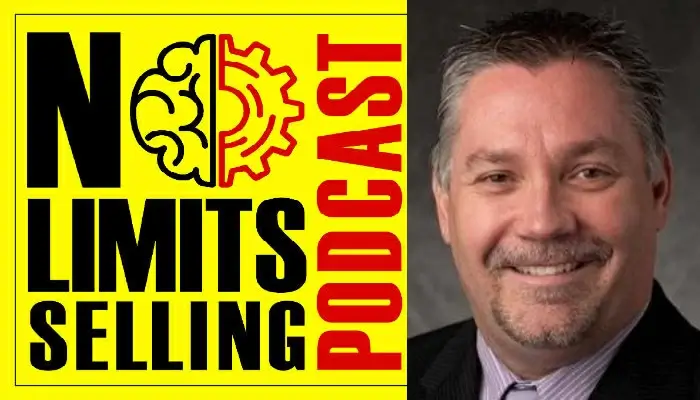The Power of Persistence in Sales by Harry Florio
Harry Florio is the AVP of Human Resources at SECU Credit Union. His passion is to help his organization build a strong culture that allows employees to reach their potential.
Harry has been a human resources practitioner for over 20 years supporting financial services companies with strategies around talent acquisition, talent management, and talent development. Shortly after obtaining a Bachelor’s degree in Business Administration, Mr. Florio began focusing on talent development by serving as a technical subject matter expert training employees on new operational workflow systems and then fully transitioning to corporate learning and overall organizational development focusing on soft-skill training, defined benefit and defined contribution retirement plan overviews, continuous process improvement and career coaching. This podcast is about the power of persistence in sales.
Podcast Highlights:
- Conflict should be embraced because if done right it helps the team evolve
- It's HR's job to get employees to go for greatness
- Great leaders build an emotional connection with their charges

Contact Harry:
[EDITOR’S NOTE: This podcast is sponsored by No Limits Selling. It is a fun, fast-paced podcast that delivers hard-fought business advice that you can implement today to improve your sales and performance]
Interested In Our Real Estate Coaching Services? Explore Our Website: Link
Feeling Not Well Today? You Can Use Our Mindset Boosters App To amp Up Your Mood: Link
Find us on Social Media:
LinkedIn | Facebook community | Instagram
Like what do you listen to? Subscribe to our podcast!
Ready to become fearless? We can help you become fearless in 60 days so you accomplish more in your career Schedule A 15 min Call with Umar
Summary
The Power of Persistence
In a recent episode of the No Limits Selling podcast, Harry Florio, a seasoned sales professional, shared his insights on the power of persistence in sales. Florio, who has spent over two decades in the sales industry, emphasized the importance of tenacity and resilience in achieving sales success.
The Art of Listening
Florio also highlighted the art of listening as a crucial skill in sales. He explained that understanding the customer's needs and wants is paramount to offering the right solutions. By actively listening, salespeople can better tailor their pitches and proposals to meet the specific needs of their clients.
Building Relationships
The podcast further delved into the importance of building relationships in sales. Florio stressed that sales is not just about closing deals but also about building long-term relationships with clients. He shared that by fostering strong relationships, salespeople can ensure repeat business and referrals, which are vital for sustained success in the sales industry.
The Role of Technology
Florio also touched on the role of technology in sales. He noted that while technology has made it easier to reach out to potential clients, it has also made the sales landscape more competitive. Florio advised salespeople to leverage technology to their advantage but also cautioned against relying solely on it. He emphasized the importance of combining technology with traditional sales skills to achieve the best results.
Overcoming Obstacles
The podcast concluded with Florio sharing his experiences in overcoming obstacles in sales. He recounted how he faced numerous rejections and setbacks in his career but never let them deter him from his goals. Florio's story serves as a powerful reminder of the importance of resilience and determination in sales.
In summary, the podcast provided valuable insights into the world of sales, highlighting the importance of persistence, listening, relationship-building, and the effective use of technology. It also underscored the need for resilience in the face of challenges, making it a must-listen for anyone in the sales industry.
Questions & Answers
What is the main theme of Harry Florio's podcast episode on No Limits Selling?
What does Harry Florio say about the importance of listening in sales?
How does Harry Florio view the role of relationship-building in sales?
What is Harry Florio's perspective on the role of technology in sales?
How does Harry Florio suggest overcoming obstacles in sales?
Who would benefit from listening to this podcast episode?
Don’t miss this opportunity to transform your real estate career with one-on-one coaching. As an experienced real estate coach, I, Umar Hameed, am dedicated to helping you unlock your full potential and achieve your real estate goals. To learn more about who am I and my clients ↓
If you’re ready to take the next step, book an appointment with me today and begin your journey toward success in the real estate industry.
